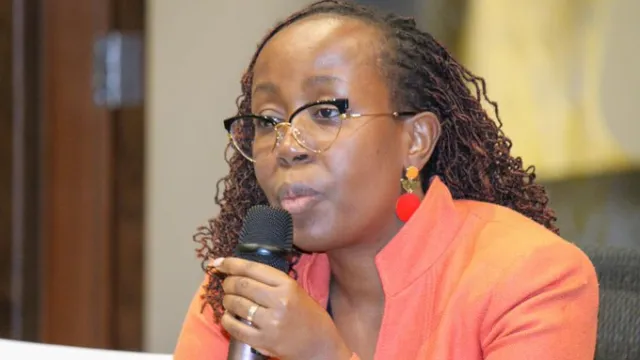Kenyans should speak out on the Finance Bill 2024

Kenyans should speak out on the Finance Bill 2024
The promulgation of Kenya’s constitution in 2010 ushered in a new dispensation that requires public participation at all levels of governance. The making of the national budget is one of the ways through which public participation is particularly critical. Today, individuals, corporate and public sector bodies have yet another opportunity to make their voice heard on the Finance Bill, 2024 ahead of the reading of the budget statement in Parliament on 13th June 2024.
Looking back, it is apparent that the Finance Bill 2023 was perhaps the most debated money bill in Kenya’s history owing to the significant taxation changes it sought to introduce to achieve the government's ambitious budget of KES 3.6 trillion for the 2023/2024 fiscal year. This bill introduced new taxes, including the Housing Levy, revised PAYE tax rates with 32.5% as the standard and 35% for income above KES 6,000,000, and increased VAT on petroleum products from 8% to 16%.
With the Government seeking to raise the Ksh 3.914 trillion revenue target in the new financial year, the Finance Bill, 2024 is poised to introduce a slew of new tax measures that call for vigorous debate and public participation. This is because tax laws directly impact people's finances. Public involvement helps ensure the tax burden is distributed fairly across different income groups and sectors of society. Voicing concerns over new taxes or amended laws in the Finance Bill 2024 can help mitigate additional tax burdens.
Secondly, public participation fosters a sense of ownership and increases acceptance of the tax system. In keeping with the motto “Nothing About Us Without Us” that was popularised by organizations representing people living with disability, people are more likely to comply with tax laws they feel are fair and necessary. As such, all sectors of society must make their views known on the tax proposals that matter to them to ensure that the proposals, once enacted, are implemented without too much contestation.
Read also: Public hearings kick off on Finance Bill 2024
Thirdly, taxation is essentially a social contract. Public participation strengthens democratic principles by giving citizens a voice in how their contributions are used to fund public services. This underscores the importance of public participation as the best means of ensuring that concerns by the citizenry are addressed effectively before the enactment of tax laws.
Finally, participating in the making of the Finance Bill can expose potential loopholes or unintended consequences in proposed tax laws. Tax laws with too many loopholes or deductions can become very complex. This can burden both taxpayers and the government, as complying with and enforcing the law becomes more expensive and time-consuming.
Another way in which unintended consequences present themselves is in the enactment of high taxes. High taxes on certain goods can create a black market for those products, or incentivize people to find ways to avoid paying the tax altogether. A seemingly neutral tax law can disproportionately affect certain groups. For instance, a tax on cooking oil might place a higher burden on low-income families. This reduces government revenue and undermines the purpose of the tax law. As stated earlier, taxes have a direct impact on individual incomes.
Tax laws that require a lot of paperwork or complex calculations can be a nightmare for both businesses and individuals. This discourages economic activity and creates frustration with the tax system. Providing perspectives on the likely unintended consequences of tax proposals allows lawmakers to refine the legislation before it's enacted.
As Kenyans, public participation is a legal right that needs to be seized, and the Finance Bill is no exception. Voicing our concerns about the bill's key pain points and supportive measures is crucial in determining whether it will be passed in a form that benefits us or worsens our situation. In doing so, we need to hold our elected leaders accountable, ensuring they represent our concerns effectively and advocate for what the people of Kenya want and need in this critical legislative process.



